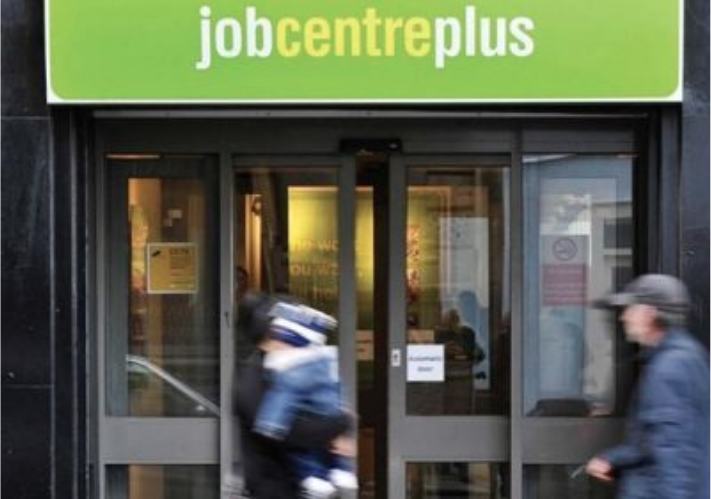Through Croydon’s drizzle I made out Noor’s shape, nebulous and bin-bag like against the sharp neon of chicken and betting shops. My boss had asked that I help this young man, who was my age, as a kind of warm up after I’d begun volunteering at an organisation specialising in giving practical advice to refugees. Having just graduated and with the irksome realisation that I needed to convince people I was up to a job, I’d jumped at the chance to sort out his life instead of mine.
The charity had multiple projects, but mine was the only one that continued to assist young people after they turned 18. One of them was Noor – a young man from Afghanistan with learning difficulties. He was the son of a Taliban commander who’d been killed in combat, and the Taliban’s plans to have him avenge his father by making him put on a suicide vest had forced his mother to hurriedly send him away, spending everything she had in the process. Circumstances for women in modern-day Afghanistan meant the process of getting her son to Europe could only be achieved with the aid of a male (in this case his maternal uncle).
I felt I was treading on eggshells as I entered Noor’s room. Looking down, I realised I was – they were strewn all over the room and led up to a giant pot of scrambled egg, as old as it was rubbery. Noor was suffering. He limped on both feet with an ingrowing toenail on one and a fungal infection on the other. He wasn’t shy about showing this and hadn’t so much offered me a hand but a nude and blistered foot upon meeting. This was partly due to dank conditions in his bedroom with the egg neighbour only to an uncovered bed and an unordered mound of papers strewn all over the floor.
He pointed to the window and laughed. “Broken. It has been broken for a long time!” He presumably understood the irony of £650 a month of Housing Benefit having been stumped up for this place and siphoned off to a private landlord whom he hadn’t heard from in months.
Noor’s status as a Care Leaver – someone who had as a child been looked after by social services – meant that he still received limited help from a social worker but, due to his learning difficulties, this wasn’t enough. His Personal Adviser at the council was unreachable. When Noor did get through to her, she mostly reminded him of how little time she had.
According to her, he’d been ignoring his texts from Universal Credit and worse, had failed to organise his finances correctly; she wasn’t keen on acknowledging that Noor could barely read his own name in English. This, along with an absent landlord, had resulted in him building up nearly £4000 in rent arrears. Even his right to the egg den now seemed precarious. Something had to crack.
My first task was accompanying Noor to Job Centre Plus. On the bus I tentatively asked about his history and he disclosed that he was alone here in the UK, speaking fondly of his older brothers who he’d lost on the journey from Afghanistan. This struck me as particularly sad as it seemed he would have benefited greatly from caring older siblings.
Once in the job centre, we were shepherded to the top floor by the G4S guards. Individually they were nice enough, but the company’s corporate edge seemed inappropriate for such a setting, adding to the overall feeling that it was a place where one is punished for even having the cheek to be there. The room wasn’t so much intimidating as stagnant. You could sense immediately that frustration was universal and, as a man barely capable of purchasing a bag of crisps without incurring some sort of late fee, I couldn’t help feeling I was the wrong person to be guiding him through.
“You will ask about bed bugs?” said Noor furtively as we edged through the foyer. He had developed a speculative obsession with his skin condition being a result of bed bugs in his room, his confusion made obvious by his thinking that the job centre was the place to sort this out. He was no longer receiving Jobseeker’s Allowance after repeatedly missing appointments and his inability to read meant that Universal Credit’s appointment confirmation texts were ineffective. Luckily I had arrived: his English eyes and English ears.
The guards sat us on a sofa in front of a woman bamboozled by an out-dated computer. She continually prodded at it with a one-fingered technique.
“Oh, the system…” she sighed. After a few visits I’d become familiar with this utterance. I tried to explain the situation: that Noor couldn’t keep to appointments when told about them by text alert, let alone spend the requisite 25 hours a week searching for work on a computer he had not the slightest idea how to use. He was on the verge of losing his house and hadn’t enough money to buy food. Ms Patel stared back at me blankly with what I would soon realise to be a face of perpetual puzzlement.
“I am sorry but this is how the system works.” I immediately became desperate, realising that I was dangerously under-qualified for the situation and lacked any decent rebuttal.
“But obviously he is simply incapable of doing that”.
“But this is the system…”
Noor wasn’t with us. He was staring out of the window at the Croydon horizon.
“Many buildings. They are doing many buildings here. Could I live in one of these?” This was no time to get into a nonsensical dialogue about the housing crisis and I swerved the conversation back to Ms Patel.
“And what about his Housing Benefit?” Noor’s rent money was now not going to his landlord but straight to him, an unfortunate arrangement for a man who, according to his bank statements, had an unhealthy habit of visiting a trainer outlet named Foot Asylum.
“I know nothing about that. You will have to call the Universal Credit Team”.
“Aren’t you Universal Credit?” I asked, my patience drained.
“No, I am in the Universal Jobs Team”.
Resignedly, we went down the road to his GP to take the fight to the fungal foot. Noor hadn’t had much luck with his doctor – she seemed infuriated by his requests for a bizarre assortment of unspecified creams. Luckily, she was exhausted at my attempts to explain an ailment I did not myself understand and she practically threw the creams at us as we left, bouncing jubilantly onto the streets of Croydon. Noor gave me a warm smile as we parted and I couldn’t help thinking I was smashing it in the world of refugees.
I’d become dangerously carried away – when I saw Noor a week later there had been no improvement with his skin (he hadn’t properly understood how to apply it), the imaginary bed bugs were still there and he asked me to read a text from Universal Credit: his monthly payment was to be cut off because he’d missed another appointment. He couldn’t tell who the text was from so he hadn’t thought to show it to me.
In the time that would follow, progress came in dribs and drabs and each minor celebration was shortly followed by bad news. The day Noor became confident enough to enrol in college and access support from social services, he was handed an eviction notice; when I managed a constructive conversation with his property manager and persuaded him to fumigate Noor’s room, he threw his mattress out onto the rain-sodden pavement to rid himself of the bedbugs, sleeping on a bed-frame for the next two weeks; every suggestion I made that his learning difficulties should put him in a different category of welfare recipients was batted away by jobcentre advisers who said they only knew about their specific department and responses from the local council were much similar.
The uproar caused by Universal Credit suggests there are many more like Noor, inertly hanging in a mesh of tired and overstretched bureaucratic webs over an abyss of loneliness and poverty. Our experience suggested a fundamental shift in the ease with which people can now access their benefits. If, like Noor, you don’t have the ability to keep up with the demands of the system and point out when you’re being treated unreasonably, you’re at the mercy of an austere bureaucracy that has a motivation see some payments slip under the net.
With Universal Credit there’s little room for beneficial human interaction: where before there was an opportunity for a kind person to help those in need, now there sits an inefficient and underfunded system which nobody quite seems to understand. Failures to resolve welfare issues within the allocated 5 minutes offered by the job centre result in continual delays. Somehow, a confusingly inefficient bureaucracy is more punishing than an obviously nasty one, not least because you don’t quite know what to complain about, let alone how to go about complaining about it.
A few months into my time helping Noor, his year of complaining about his Personal Adviser finally paid off and he was assigned a new one. The difference couldn’t have been starker: he was moved into supported accommodation where his learning difficulties were accounted for and he received help for a couple of hours a day. Mark also got him back into college learning English and accompanied him to the Job Centre where his studies meant he was entitled to support of a less conditional nature. Again Noor had at least a semblance of purpose in British society. He got lucky where many others don’t…
I don’t want to give the impression that there were no victories in my time with him but they were few. In amongst the despair, it was interaction that offered us the only real glimmer of hope. We didn’t just see the injustice of the system he faced but the almost comical futility of our actions and there, hopelessness met fun. I left my job and said goodbye to Noor. I’ve missed him.



